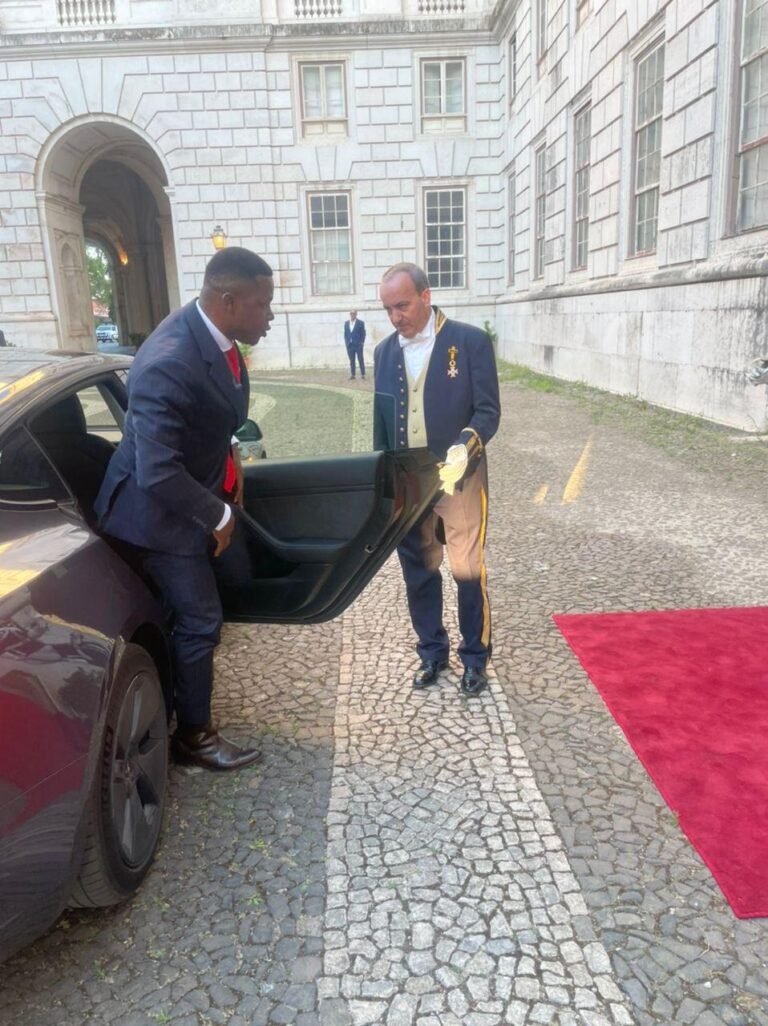Few African nations are taking significant action to promote sustained economic growth and more local job possibilities. Due to this, it is now more important than ever to adopt a strategy that aims at promoting these policies in the best manner possible. Having stated that, there are few people, such as NJ Ayuk, who think otherwise.
To safeguard the oil and gas industry, NJ Ayuk of the African Energy Chamber openly modified even the stringent of the regulations. He basically charges western economic pressure of pressing Africa to embrace environmental protection measures because he is an unsatisfied businessman. Although he accepts climate change, his odd clothing sense, populist swagger, and pro-fossil fuel rhetoric reveal that he is shameless in his opinion that Africa should be allowed to produce natural gas.
When I wrote Ayuk’s story, I adopted an African perspective. I learned via social media that he will perform on stage with the President at the Euro-African Forum in Portugal.
Joo Pedro Matos Fernandes, a former environment minister for Portugal, was also supposed to take part in the discussion. I thought I would be successful. José Maria Neves, the president of Cape Verde, Marcelo Nuno Duarte Rebelo de Sousa, the leader of Portugal, José Manuel Duro Barroso, the chairman of the EurAfrican Forum, Joseph P. McMonigle, the secretary-general of the International Energy Forum, and Benedict OkechukwuOramah, the president and chairman of Afreximbank, were among the other speakers.
I approached him during the break, and he grinned. “You’re Fake News,” he remarked with a condescending sneer. You won’t be able to persuade me to support Africa’s oil and gas sector. No one responded to my inquiries. I could only gape in horror at him. He became known for being reliable. He was covered by Reuters, Forbes, and a young activist. He responded in a way that was beneficial. You knew he had a well planned out plot and that the demonstrators outside were pawns.
The lecturer questioned him about the decarbonization plan. Ayuk: “We need to start producing more gas right away, and we need to drill more gas wells.” What is the African Energy Chamber’s corporate strategy? European and African proponents of oil and gas must ramble, argue, and be entertaining. I have to put a stop to them. By addressing important day-to-day issues like energy poverty, employment, personal responsibility, and free markets while focusing on our individual circumstances and dismantling the current worldview, we can motivate Africans to become, in Mother Theresa’s words, “a pencil in God’s hand” and begin a new chapter in their lives.
He argued for immediate decarbonization in Europe to help Africa’s growth. He claimed that China and Russia chuckle at their respective countries’ inadequate energy programs. Ayuk responded, “You are why politicians shouldn’t be involved in energy problems,” in response to the Minister of Environment and Energy Transition’s question about his support for oil and gas. Africans shouldn’t be forced to foot the bill for European pollution because the real problem is global warming, not African warmth.
The Minister was incensed at Ayuk for calling natural gas “Green Gas” and for making fun of him. He was wise. He was aware that if the Minister was pressed about fossil fuels, he would lose his cool. He kept bombarding the Minister with information about gas and oil, which made him agitated. He was determined not to allow the Minister’s emotions influence him.
Attacks by politicians on the oil and gas industry in Europe and Africa “would hurt energy workers and our energy security,” according to the authors. The East African Crude Oil Pipeline, the Mozambique LNG, the South African Seismic Programs, and other oil and gas projects in Africa are being halted by climate activists, but the African Energy Chamber is fighting back. The transformation should be led by free markets, not by foolish campaigners. Ayuk went on.
By telling the audience that “Africa’s green gas is still the only source of abundant, inexpensive, and reliable energy, not expensive solar and wind,” he demonstrates his skill at debating. Oil and gas are essential to industrial civilization and were the first things that made it possible, Ayuk calmly remarked to the group. Even Jesus enjoyed using natural gas as a result of the industrialization of oil and gas, which raised living standards and provided prosperity to the West. Why aren’t China and India witnessing a decrease in energy and absolute poverty as a result of industrialization and more open markets. Some individuals in Europe feel that Africans are not deserving of it.
Ayuk’s opinions on oil and gas are refuted by Luis Magalhaes. “Having a person who wants to talk about oil and gas more is awful. When Carlos Sousa commented, “I find it inconceivable that a respectable guy would submit to the oil business,” he was speaking of Ayuk. Nobody should stand in the way of Africans developing using their gas resources. Heaven and hell are options available to even God. As punishment for opposing climate change, Ayuk will burn in hell.
Ayuk continuously advocates for a western viewpoint and exhibits an amazing command of the terrible vocabulary he uses in relation to fossil fuels. That said, he is unintentionally used as a punching bag by individuals who despise the oil and gas industry. At this point, I considered taking a note of NJ Ayuk’s tendency to pose as a sheep while actually being a wolf.


